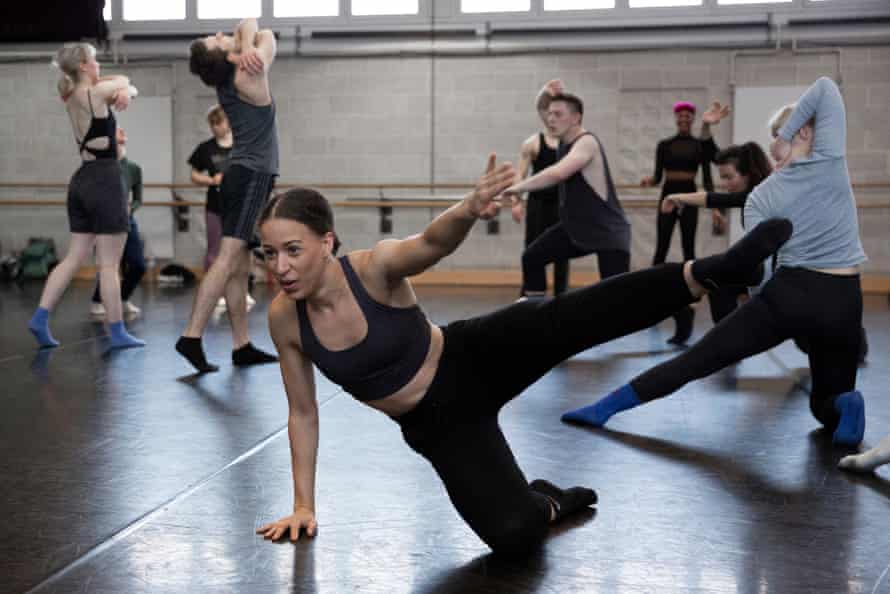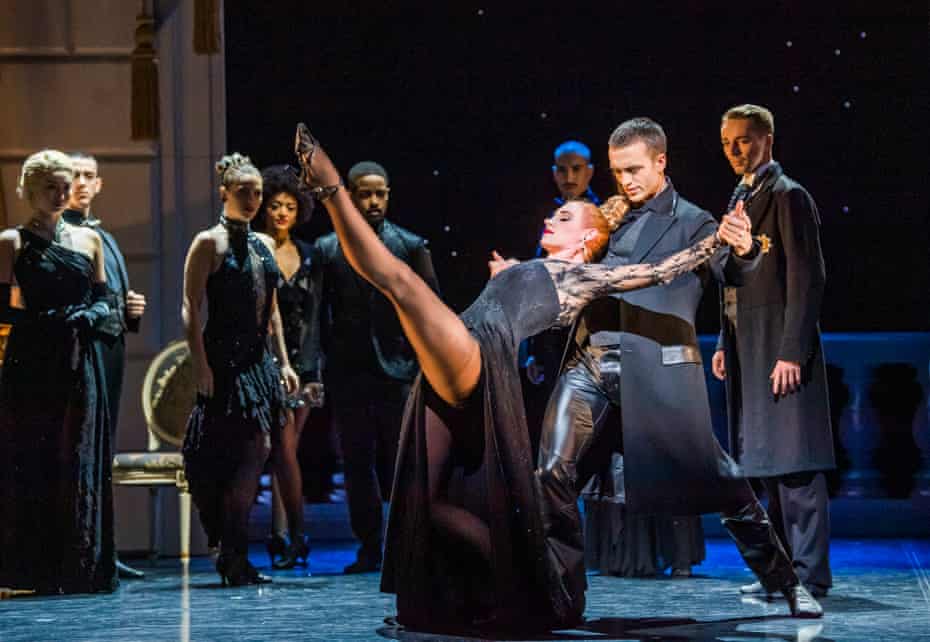Matthew Bourne: dance isn’t ‘taken as seriously as I’d thought’ | Matthew Bourne
Sir Matthew Bourne, one of Britain’s most successful dance figures, has said the government response to the pandemic made him realise it does not respect his industry as much as he’d imagined.
The choreographer – who is acclaimed for innovative versions of classics such as Swan Lake, Sleeping Beauty and Romeo and Juliet – said that dance and theatre’s internationally admired freelance talents had become “forgotten people” during lockdown.
“I felt quite strongly that we weren’t taken as seriously as I thought we were – by the government, at least,” said Bourne. “That we weren’t appreciated, maybe. I thought we were more needed. It’s taken a while for that to be realised.” He is now focused on proving that dance is “an important industry and much needed and much loved by our audiences” as Britain’s theatres begin to reopen their doors this month.

Bourne’s company, New Adventures, employs a large freelance workforce on a contract by contract basis. When stages went dark, it was painful to see so many of them out of work for such an extended period, said the choreographer.
Outside the major ballet companies, most dancers and choreographers are freelance (more than 80% according to One Dance UK). It is a precarious existence and while some were eligible for support, others fell between the cracks in the self-employment income support scheme. The government’s £1.57bn emergency support package for the arts was perceived as protecting institutions rather than trickling down to the freelance individuals dominating its creative workforce. The government was also criticised last year for suggesting arts jobs are not “viable” and for running the CyberFirst advertising campaign about a ballerina, Fatima, retraining for a career in technology.
Fourteen months on from the initial closure of theatres in March 2020, the effects of the lockdown can be seen on all dancers, at different stages of their careers, said Bourne. “There is a big gap in some young people’s training now and in their experiences – like everyone who was about to graduate last year. No one can deny that they’ve really missed out in their final years. This is true of a lot of young people – they’ve lost out so much.” For those performers who are more established, spending over a year away from the stage has been damaging because “as a dancer, your career is so short – you’re missing golden years you’ll never get back”.

On 6 May, New Adventures is launching a new training programme, Cygnet School, that will have a base at the Marlowe theatre, Canterbury, for the next three years. Supported by the Dorfman Foundation, the programme is aimed at young people from underprivileged backgrounds and has been developed to increase diversity and equity of opportunity in dance. Gains in these areas are widely considered to be under threat in dance and theatre as a direct result of the pandemic.
The school is designed to bridge a gap that Bourne had noticed between young people who excel in dance at a grassroots level and those who are able to proceed with vocational training. “A lot of the young people who were coming to us for auditions were quite raw – the talent was there but they weren’t quite ready to go into a professional show,” he said. New Adventures had already established Swan School, which provides classes and workshops to develop new dance talent, but “we were missing people at a younger age”. As its name suggests, Cygnet School will nurture fledgling dancers. A lot of these promising young adults “slip through the net”, said Bourne, particularly if they come from low-income backgrounds. The new school will be part of what he says is a long-term mission to make the industry more diverse.
The first cohort of a dozen dancers, aged 12-24, have already been selected for Cygnet School, selected through New Adventures’ projects in recent years. They will begin their programme of workshops and residencies at the Marlowe in July.

New Adventures, which is one of Arts Council England’s national portfolio organisations, did not apply for extra funding during the pandemic. While its plans for stage productions were postponed, the company found new audiences with filmed versions of its shows, captured before lockdown. The digital boom has widened dance’s reach, Bourne believes. “It’s created interest in a way that we mustn’t let go of now as an industry.”
A major revival of The Car Man, Bourne’s thrilling version of Bizet’s Carmen, was originally scheduled to run this June as part of the Royal Albert Hall’s 150th anniversary celebrations. But as full capacity cannot be guaranteed by then, the venue plans to host the production next summer instead. Bourne’s Nutcracker! will open at Plymouth Theatre Royal in November, followed by the company’s traditional Christmas season at Sadler’s Wells in London and a spring tour.
“I’m excited that we’re finally talking about making plans for coming back,” Bourne said. His company are brimming with enthusiasm and passion, he added, observing that it was incredible how they had managed to keep up their levels of fitness while stuck at home doing Zoom classes in their kitchens and living rooms. As Britain’s theatres light up once more, he anticipates “an exhilarating time for performers – and for audiences”.
